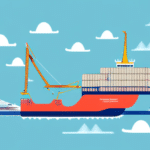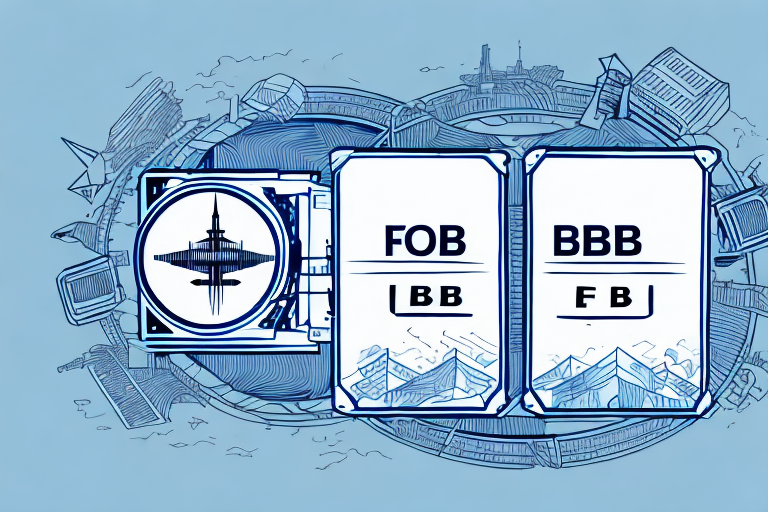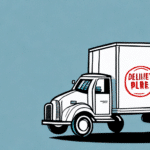Understanding FOB Shipping Terms
In the realm of logistics and shipping, FOB stands for "Free on Board." This term defines the point at which ownership and responsibility for goods transfer from the seller to the buyer. Understanding FOB terms is crucial for businesses to manage shipping costs, liability, and logistics effectively.
Definition of FOB
FOB terms dictate who is responsible for the goods at each stage of the shipping process. The two primary types are FOB Origin and FOB Destination, each assigning different responsibilities and risks to the seller and buyer.
FOB Origin: Responsibilities and Implications
FOB Origin means that the seller's responsibility ends once the goods are loaded onto the shipping carrier. From that point forward, the buyer assumes all risks and costs associated with transportation.
Seller's Responsibilities
- Packaging and preparing goods for shipment
- Loading goods onto the carrier
- Handling export customs if shipping internationally
Buyer's Responsibilities
- Arranging and paying for transportation from the origin point
- Insuring the goods during transit
- Handling import customs and duties if applicable
Advantages of FOB Origin
- Cost Control: Buyers can select carriers that offer the best rates.
- Transparency: Clear responsibility transfer points reduce disputes.
Disadvantages of FOB Origin
- Increased Risk for Buyers: Buyers bear the risk of loss or damage during transit.
- Logistical Complexity: Buyers must manage shipping logistics, which can be challenging.
FOB Destination: Responsibilities and Implications
FOB Destination places the responsibility on the seller until the goods reach the buyer's specified location. The seller is accountable for transportation costs and any risks until delivery.
Seller's Responsibilities
- Arranging transportation to the buyer's location
- Paying for freight charges
- Insuring goods during transit
Buyer's Responsibilities
- Receiving and unloading goods
- Handling import customs and duties if applicable
Advantages of FOB Destination
- Reduced Risk for Buyers: Sellers are responsible until delivery, minimizing buyer's risk.
- Simplified Logistics: Sellers handle transportation arrangements.
Disadvantages of FOB Destination
- Higher Costs for Sellers: Sellers may face higher transportation costs.
- Potential Delays: Dependence on seller's logistics can lead to delays.
Choosing Between FOB Origin and FOB Destination
Selecting the appropriate FOB term depends on various factors, including the nature of the goods, the reliability of the carriers, and the buyer's capacity to manage logistics.
Factors to Consider
- Control Over Shipping: Buyers wanting more control may prefer FOB Origin.
- Risk Management: Buyers seeking to minimize risk might opt for FOB Destination.
- Cost Implications: Analyzing total shipping costs under each term.
Industry Practices
Different industries may favor different FOB terms based on standard practices and the nature of their supply chains. For example, the manufacturing sector often uses FOB Origin for bulk shipments, while the retail sector may prefer FOB Destination to ensure timely deliveries.
Negotiating Freight Costs and Managing Risks
Effective negotiation and risk management are essential regardless of the chosen FOB term. Businesses can employ several strategies to optimize freight costs and mitigate risks.
Strategies for Cost Optimization
- Frequent Carrier Partnerships: Building relationships with reliable carriers can lead to better rates.
- Consolidated Shipments: Combining multiple orders can reduce per-unit shipping costs.
- Utilizing Freight Brokers: Brokers can negotiate competitive rates on behalf of businesses.
Risk Mitigation
- Insurance: Ensuring goods are adequately insured during transit.
- Clear Contracts: Detailed agreements outlining responsibilities and liability.
- Tracking and Visibility: Using tracking technologies to monitor shipments in real-time.
Incoterms and Their Impact on Shipping Strategies
Incoterms are standardized international trade terms that define the responsibilities of buyers and sellers. Understanding Incoterms is essential for developing effective shipping strategies.
Key Incoterms Related to FOB
- FOB (Free on Board): Responsibility transfers when goods are loaded onto the carrier.
- CIF (Cost, Insurance, and Freight): Sellers cover cost, insurance, and freight to the destination port.
- EXW (Ex Works): Sellers make goods available at their premises, and buyers handle all transport.
Choosing the Right Incoterm
Selecting the appropriate Incoterm involves assessing factors such as control, risk tolerance, and logistical capabilities.
Case Studies: FOB Origin vs. FOB Destination in Various Industries
Examining real-world examples can provide valuable insights into the practical application of FOB terms across different sectors.
Manufacturing Industry
A leading electronics manufacturer utilizes FOB Origin to manage bulk shipments efficiently, leveraging established carrier relationships to negotiate favorable rates and ensure timely deliveries.
Retail Sector
A major retail chain adopts FOB Destination to minimize risk and ensure products arrive in optimal condition, enhancing customer satisfaction and trust.
Conclusion
Choosing between FOB Origin and FOB Destination is a strategic decision that impacts shipping costs, liability, and overall logistics efficiency. By thoroughly understanding the responsibilities and implications of each term, businesses can make informed decisions that align with their operational goals and risk management strategies.
For more detailed information on international shipping terms, refer to the International Chamber of Commerce's Incoterms guidelines.






















